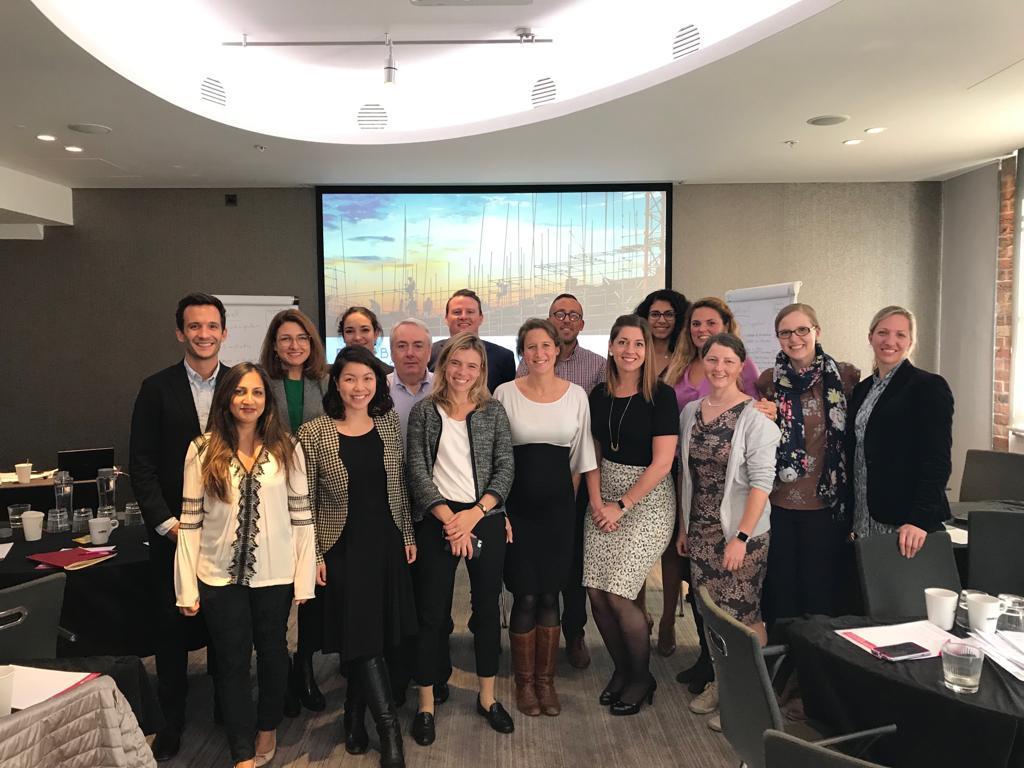Collaborating to End Modern-Day Slavery
By: Méabh Browne , UK Regional Sustainability Manager

Global Challenge
As we marked Human Rights Day earlier this month, an estimated 40.3 million victims remained trapped in modern slavery globally.
Construction industry workers are among the populations most vulnerable to modern-day slavery. The high demand for low-skilled workers and the prevalence of temporary staff are just two contributing factors. The global scale of many engineering and construction (E&C) companies working on international projects, alongside great variation in local human rights standards and regulations, adds to this challenge.
Modern-day slavery is often hidden on construction sites and in supply chains. Because construction projects involve multiple layers of contracts and often have lengthy, complex product and service supply chains, it is difficult if not impossible to have total control over every transaction.
Global Principles
Because no single E&C company can tackle this alone, Bechtel became a founding member of the Building Responsibly initiative in 2017, a coalition of leading global E&C companies dedicated to improving worker welfare.
This collaboration enables E&C companies to promote standards, policies, and practices to more effectively elevate the “whole-of-industry.” Members share deep knowledge and practical insights to set a common standard to protect workers around the world. We also seek ideas from governments, NGOs, academic organizations, and other diverse stakeholders.
In 2018 Building Responsibly launched 10 Worker Welfare Principles to engage subcontractors, governments, and other industry stakeholders around critical areas of worker vulnerability.
- Workers are treated with dignity, respect, and fairness
- Workers are free from forced, trafficked, and child labour
- Working conditions are safe and healthy
- Living conditions are safe, clean and habitable
- Recruitment practices are ethical, legal, voluntary, and free from discrimination
- Access to documentation and mobility is not restricted
- Freedom to change employment is respected
- Wage and benefit agreements are respected
- Worker representation is not infringed
- Grievance mechanisms are readily available
From Principles to Practice
A year later, Building Responsibly launched a series of Guidance Notes to help members implement the Principles. E&C members developed the Guidance Notes drawing from their unique know-how and experiences, supported by inputs from human rights NGOs, corporations, international organizations, civil society (i.e. informal networks of community citizens linked by common interests and collective activity), and other groups. In October 2019, Building Responsibly convened in London to unveil the Guidance Notes and start promoting its implementation.
Because the Principles and corresponding Notes are also aligned with international human rights standards, such as the United Nations Guiding Principles on Business and Human Rights or the ILO Core Labor Standards, any organization can adopt and implement them.
Each Note identifies key worker welfare issues and challenges related to construction projects, discusses how to address them, and provides additional resources and tools to aid the user.
The Principles and Guidance Notes are integral to Bechtel’s 2030 enterprise sustainability goals and targets to prevent modern-day slavery in our supply chain. This includes our continued work with Building Responsibly to help advance worker welfare and achieve our common goal of safety, productivity, and responsible engagement with our workers and suppliers.
To read more visit the Bechtel Sustainability blog.

